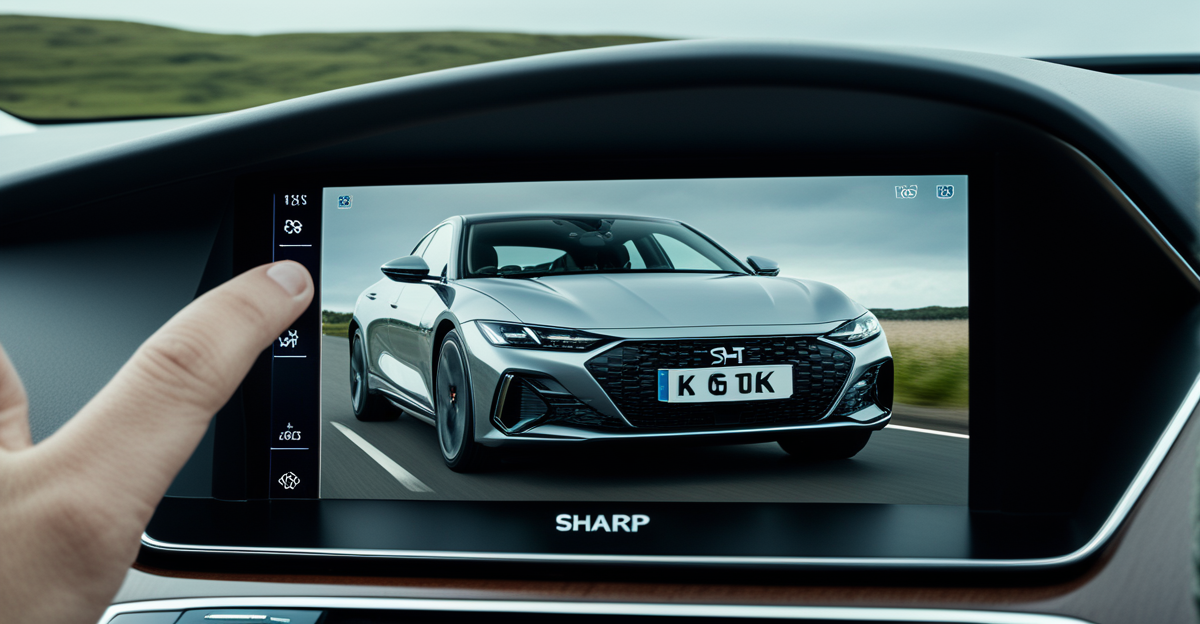Key Automotive Trends Reshaping the UK Car Market
The UK automotive trends currently shaping car buying decisions reveal a sector undergoing rapid transformation driven by both technology and policy. A significant trend is the widespread adoption of electric vehicles (EVs). With increasing environmental concerns and government mandates, more buyers consider electric and hybrid models. This shift is heavily supported by industry innovations in battery life and vehicle range, which directly affect running costs and resale values, important factors for purchasers.
Alongside EVs, evolving government regulations and incentives play a crucial role. Subsidies and tax breaks encourage buyers to make cleaner, smarter choices, while the promise of future bans on petrol and diesel vehicles changes how consumers plan long-term ownership. These regulations also stimulate manufacturers to innovate more rapidly, fostering a competitive landscape focused on sustainability and efficiency.
Also to read : What are the challenges faced by UK automakers in transitioning to EVs?
New car features now frequently incorporate emerging technologies such as advanced driver-assistance systems, AI-driven automation, and enhanced connectivity. These innovations meet rising consumer expectations for safety and convenience. Buyers increasingly prioritize vehicles that offer smart technology integration, including connected infotainment systems and real-time diagnostics, reflecting a broader trend toward automotive innovation in the UK.
In summary, the intersection of electric vehicle adoption, government policy, and cutting-edge technology creates a dynamic environment where buyers must weigh multiple factors. These UK automotive trends not only influence immediate car buying decisions but also redefine future demands and manufacturer strategies.
Additional reading : How Will Autonomous Vehicles Transform the Car Manufacturing Industry?
Impact of Electric Vehicles on Buyer Choices
Electric vehicles UK have dramatically influenced car buying decisions by addressing critical concerns such as range anxiety and charging availability. The expansion of EV charging infrastructure, with increasingly widespread stations across urban and rural areas, has made owning an electric car more practical. EV trends also highlight continuous improvements in battery technology, leading to longer driving ranges and faster charging times, directly reducing consumer hesitation related to usability.
Battery technology improvements impact running costs significantly. Advanced lithium-ion and solid-state batteries offer better efficiency, which lowers electricity consumption per mile and extends battery lifespan. This evolution enhances the future of electric cars by increasing resale values — buyers perceive these vehicles as long-term investments rather than short-term expenses.
Government incentives remain pivotal in shaping buyer preferences. Generous subsidies, tax breaks, and grants reduce upfront costs, making electric vehicles UK more affordable. Coupled with planned petrol and diesel bans, these incentives are accelerating the transition away from fossil-fuel vehicles. Buyers increasingly consider the total cost of ownership, influenced by ongoing policy changes, which further cements the EV market’s growth and prominence in the overall UK car market.
Smart Technology Integration in Modern Cars
Smart car technology has rapidly become a cornerstone of automotive innovation UK, significantly shaping car buying decisions. Modern vehicles increasingly feature advanced driver-assistance systems (ADAS) such as adaptive cruise control, lane-keeping assist, and automated emergency braking. These safety-enhancing features are not just luxuries but expected standards, influencing buyers to prioritize models that integrate such technologies.
Connected vehicles utilize real-time data and communication networks to offer benefits including live traffic updates, remote diagnostics, and over-the-air software updates. This constant connectivity improves convenience and vehicle upkeep, encouraging consumers to select cars equipped with these capabilities. The integration of smart car technology creates a seamless user experience, bridging the gap between traditional driving and emerging digital lifestyles.
Artificial intelligence (AI) and automation underpin many of these innovations. AI-powered systems in modern cars enable predictive maintenance, personalized settings, and even semi-autonomous driving modes. These functions elevate driver comfort and safety, directly impacting the future landscape of UK automotive trends. Buyers increasingly demand vehicles that incorporate these intelligent features, reflecting evolving expectations related to innovation and usability.
In summary, the fusion of smart car technology, connectivity, and AI propels the UK automotive market towards greater sophistication. Buyers weigh these advancements heavily, demonstrating how technology-driven features are fundamental components influencing car buying decisions today.
Sustainability and Environmental Priorities
Sustainability has become a defining factor within UK automotive trends, with manufacturers and consumers alike placing increased emphasis on eco-conscious choices. Car buyers are actively considering the environmental impact of their purchases, making sustainable vehicles a critical part of their decision-making process.
Automakers are responding to these demands through green car initiatives, which include commitments to carbon neutrality across production lines and the adoption of eco-friendly manufacturing practices. These efforts not only reduce the industry’s carbon footprint but also influence the types of models available on the market, pushing a shift toward hybrid and fully electric options.
Strict emissions regulations play a major role in shaping vehicle offerings. Governments impose rigorous limits on pollutants, prompting manufacturers to innovate in engine design and alternative fuel technologies to meet these standards. The result is a growing selection of vehicles that combine performance with lower emissions, satisfying both regulatory requirements and consumer preference for cleaner transport.
Consumer demand increasingly favors hybrids and alternative fuel vehicles such as hydrogen-powered cars, reflecting a shift toward broader sustainability goals. Buyers evaluate not only fuel efficiency but also the overall environmental lifecycle of a vehicle—from manufacture to disposal—highlighting the importance of sustainable vehicles in car buying decisions. This has made eco-friendly options more mainstream within the UK’s automotive landscape, signaling a lasting transformation in market priorities driven by environmental awareness.
Evolving Car Ownership and Usage Models
UK car market economics have shifted alongside the changing landscape of car ownership trends UK. Traditional buyers once favored outright ownership, but now many explore flexible alternatives like car subscription services. These new models offer adaptability, allowing users to switch vehicles or cancel agreements without the long-term commitment typical of purchasing a car. This flexibility appeals especially to younger consumers and urban dwellers who prioritize convenience over permanence.
Cost considerations play a crucial role in these evolving ownership models. Subscriptions often bundle insurance, maintenance, and road taxes into one fee, simplifying budgeting and reducing unexpected expenses. This contrasts with traditional ownership, where buyers face variable costs, including depreciation and servicing. For many, the predictability of subscription payments makes car use more accessible, particularly amid economic uncertainties affecting the UK car market economics.
Mobility solutions also respond to diverse consumer needs, balancing short-term and long-term usage. Car sharing schemes complement subscription services by offering access without ownership or lengthy contracts, meeting demands for occasional or city-centred travel. Meanwhile, leasing remains attractive for those wanting newer models without the upfront costs of purchase, reflecting how finance options influence car buying decisions.
Overall, these evolving patterns illustrate an industry adapting to modern lifestyles and economic pressures. By embracing flexible, service-oriented ownership, the UK automotive market aligns with shifting consumer priorities, making vehicle access more tailored and sustainable over time.
Economic Influences on Car Buying Decisions
Economic factors have become increasingly critical in shaping car buying decisions within the UK car market economics. Rising car prices, driven by inflation and ongoing supply chain disruptions, have increased the upfront cost of new vehicles. These pressures cause many buyers to reconsider purchase timing or explore alternative options like financing and leasing to manage affordability.
Supply chain issues, including semiconductor shortages and logistics delays, constrain vehicle availability and contribute to price volatility. This scarcity elevates resale values as used cars grow in demand, affecting buyers’ long-term cost calculations. Understanding projected trends in car depreciation helps consumers make informed choices by balancing purchase price against expected future value.
Financing and insurance also play a pivotal role. Flexible payment plans and competitive insurance packages can ease the financial burden of car ownership. Leasing presents another popular choice, offering lower monthly payments and access to newer models without full ownership obligations. These options align with evolving consumer preferences and economic conditions, highlighting the importance of financial considerations in the overall UK automotive trends ecosystem.








